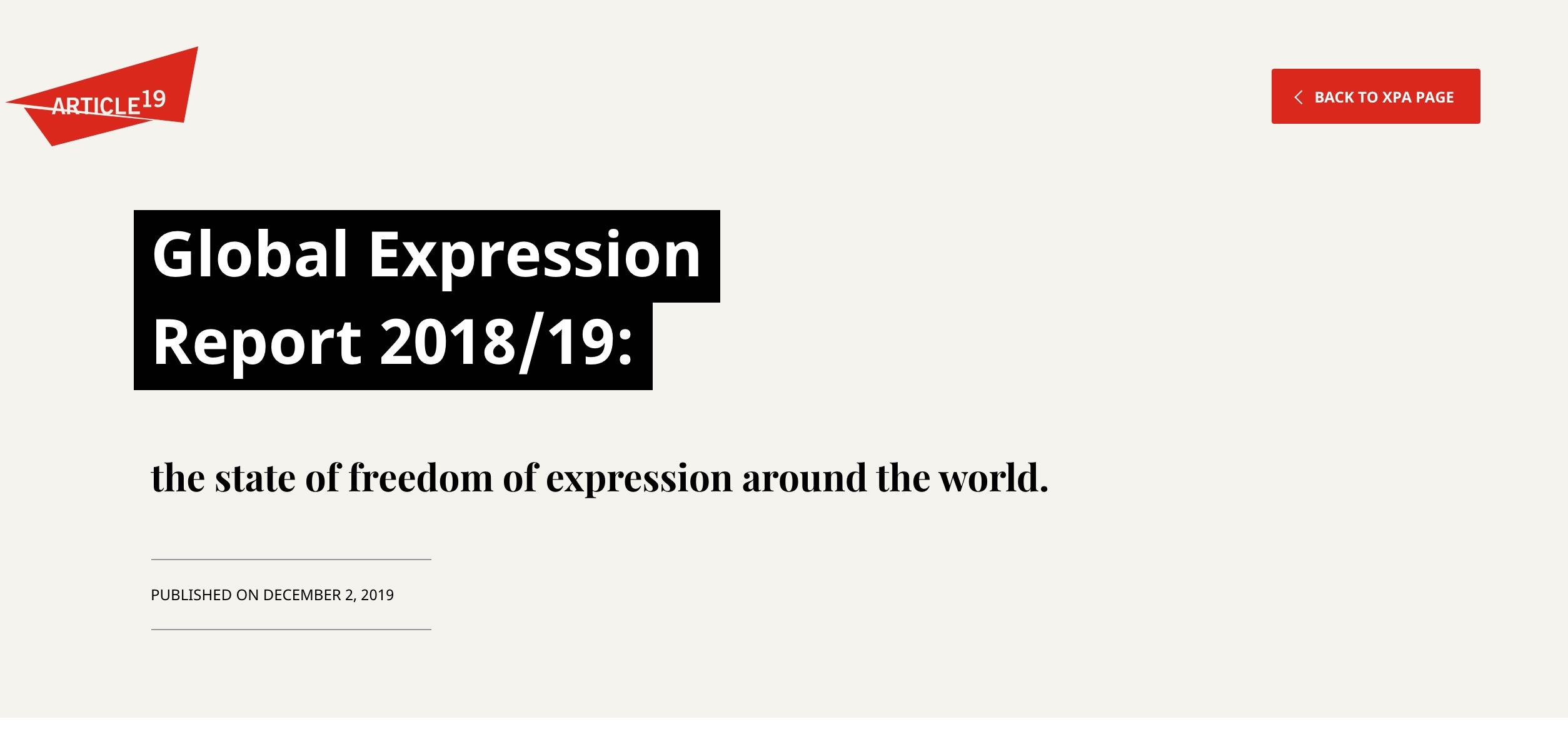Digital freedom of speech and expression has hit a ten-year low in most parts of the world, according to a study by Article 19 – a charity that specializes in promoting such freedoms.
The rights group has called on governments to “reverse this trend”.
The report has expressed concerns over the rise of “digital authoritarianism” where technology is used to clamp down on internet content.
Freedom of expression had increased between the years 2008 and 2013 but has since dropped more sharply over the last five years, across 66 countries.

Freedom of expression as it relates to digital freedoms has dropped lower than where they were ten years ago in almost all regions of the world.
The “digital” aspect of the report relates to the “ability to express oneself via the internet,” the charity says.
The only regions where it did not relatively decline were North Africa and the Middle East.
The rights group outlines internet shutdowns and blockings, digital surveillance, the rise of sovereign internet networks, the lack of privacy, and artificial intelligence as being possible threats to free expression.
The report has delved into modern problems with social media and content moderation, acknowledging the scope of the challenge with “2.2 billion active Facebook users and 330 million Twitter users, while 1 billion hours of video are watched daily on YouTube.”
The group says that the effects of the power that these companies hold “are still becoming clear.”
“The way that technology companies – particularly social media networks – function can be seen as a monopoly; one that distorts the market and violates both consumer and human rights,” the Article 19 report says. “If a company controls a large part of the social media market, as giants like Facebook and Twitter do, they become not only an economic gatekeeper but also a human rights gatekeeper – particularly in terms of expression and privacy.”
The report’s analysis of the social media landscape being a monopoly of power is one that will be understood and appreciated by many.
Many have criticized the power of social platforms to control the conversation in just the last year alone. The topic of big tech censorship has been discussed in the United States’ congressional hearings.
“In a free and competitive market, abusive terms of service would be unsustainable,” the report suggests.
Article 19 speculates that competition law would be a good way to help alleviate some of the issues of social media censorship.
“In a functioning market, individuals would shift to other platforms offering better terms that protected their expression. In the world of social media, simply transferring use to another platform is not possible, due to the network effect – where the value of a product or service increases according to the number of others using it,” Article 19 concludes.













